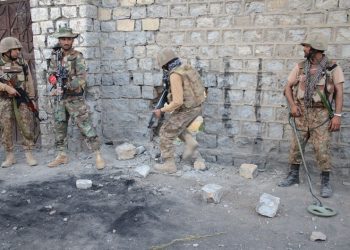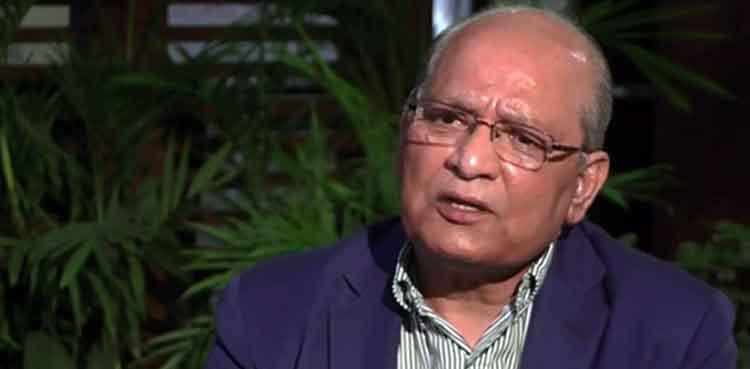Israel announced its worst combat losses for more than a month on Wednesday after an ambush in the ruins of Gaza City, and faced growing diplomatic isolation as civilian deaths mounted and a humanitarian catastrophe worsened. Intense fighting was under way both north and south Gaza, a day after the United Nations demanded an immediate humanitarian ceasefire. U.S. President Joe Biden said Israel’s “indiscriminate” bombing of civilians was costing international support.
Warplanes again bombed the length of Gaza and aid officials said the arrival of winter rain worsened conditions for hundreds of thousands sleeping rough in makeshift tents. The vast majority of Gaza’s 2.3 million people have been made homeless. Israel had global sympathy when it launched a campaign to annihilate the Hamas militant group that controls Gaza after fighters stormed across the border fence on Oct. 7, killing 1,200 Israelis, mostly civilians, and seizing 240 hostages.
But since then, Israel has besieged the enclave and laid much of it to waste. Gaza’s health ministry said on Wednesday at least 18,608 people have been killed and 50,594 injured in Israeli strikes on Gaza since Oct. 7. Many thousands more are feared lost in the rubble or beyond the reach of ambulances. In Rafah, in Gaza’s south where hundreds of thousands of people have sought shelter, the bodies of a family killed in an overnight air strike were being laid out in the rain in bloodied white shrouds, including several small children. One, the size of a newborn, was wrapped in a pink blanket.
Ahmed Abu Reyash collected the bodies of his nieces, aged 5 and 7. As he walked through the street carrying one of the girls, a relative tugged at the shroud and shouted: “These are children! Children! Do they kill anyone other than children? No! These are innocents! They killed them with their dirty hands!” At a tent camp in Rafah, Yasmin Mhani said she had woken up at night to find her youngest child, who is seven months old,
soaking wet . Her family of five are sharing a single blanket after their home was destroyed by an Israeli air strike. One child was killed and they lost all their possessions.
“Our house was destroyed, our child was martyred and I remain facing it all. This is the fifth place we have had to move to, fleeing from one place to another, with nothing but a t-shirt on,” she said, hanging wet clothes outside her tent. The scars of Israel’s ground assault could also be seen in a cemetery in the Al-Faluja neighbourhood of Jabalia, northern Gaza, where passing tanks had churned up the ground, breaking and scattering gravestones and disinterring some corpses.
Since a week-long truce collapsed at the start of December, Israeli forces have extended their ground campaign from the northern Gaza Strip into the south with the storming of the main southern city of Khan Younis. Meanwhile, fighting has only intensified amid the rubble of the north, where Israel had previously said its military objectives had been largely met.
Israel reported 10 of its soldiers killed in the past 24 hours, including a full colonel commanding a forward base and a lieutenant-colonel commanding a regiment. It was the worst one-day loss since 15 were killed on Oct. 31. Most of the deaths came in the Shejaia district of Gaza City in the north, where troops were ambushed trying to rescue another group of soldiers who had attacked fighters in a building, the military said.
‘BRINGING DESTRUCTION AND DEATH’ Hamas said the incident showed that Israeli forces could never subdue Gaza: “The longer you stay there, the greater the bill of your deaths and losses will be, and you will emerge from it carrying the tail of disappointment and loss, God willing.”
An Israeli air strike on a house in Deir Al-Balah in central Gaza killed five people, according to health officials. In the south, Israeli forces storming Khan Younis advanced in recent days to the city centre. The Israelis were using bulldozers to destroy a road near the Khan Younis home of the Hamas leader in Gaza, Yahya Al-Sinwar, Abu Abdallah, a father of five who lives 2 km from the city centre, told Reuters.
Hospitals in the north have largely stopped functioning altogether. In the south, they have been overrun by dead and wounded, carried in by the dozen throughout the day and night. “Doctors including myself are stepping over the bodies of children to treat children who will die,” Dr Chris Hook, a British physician deployed with medical charity MSF at Nasser hospital in Khan Younis, told Reuters.















































